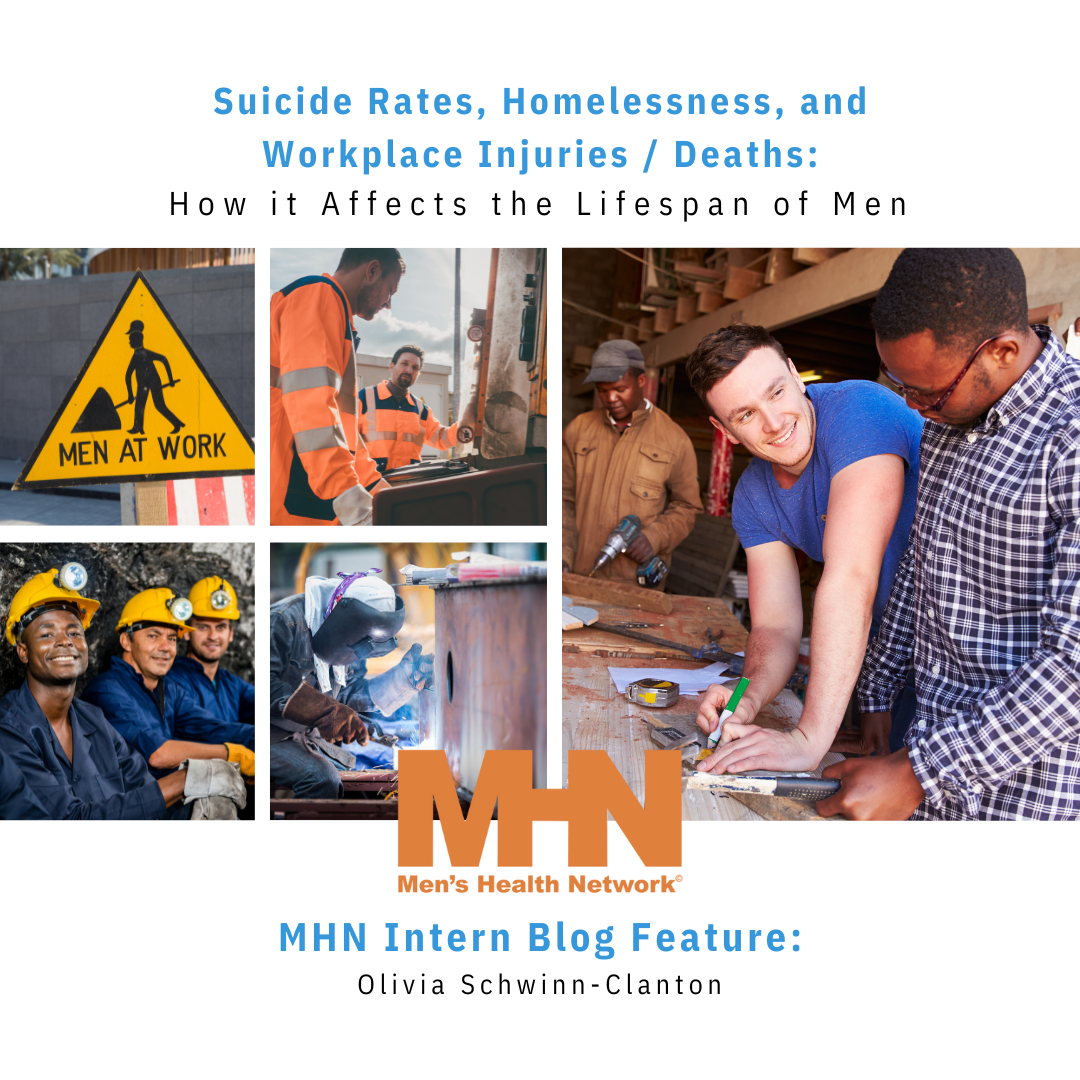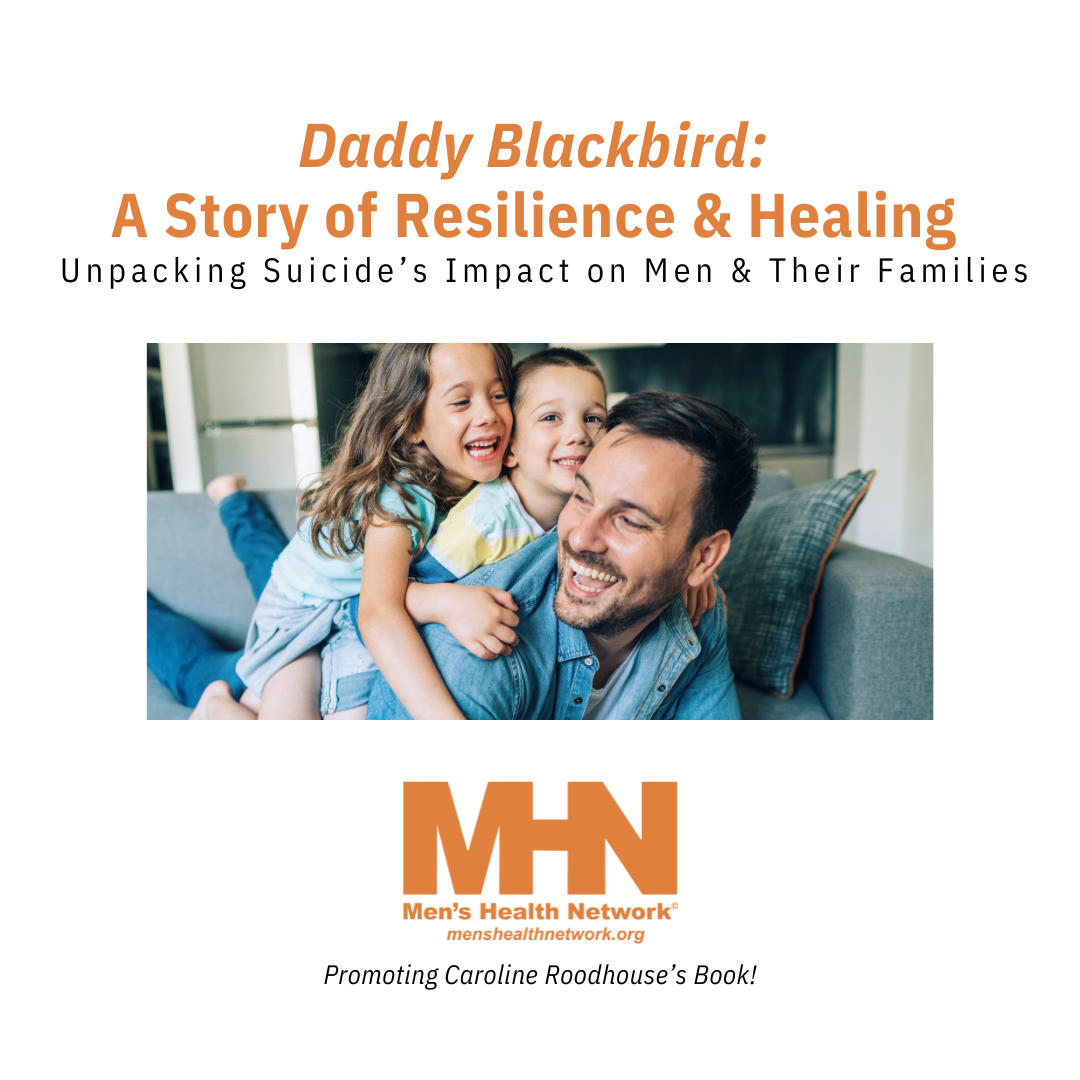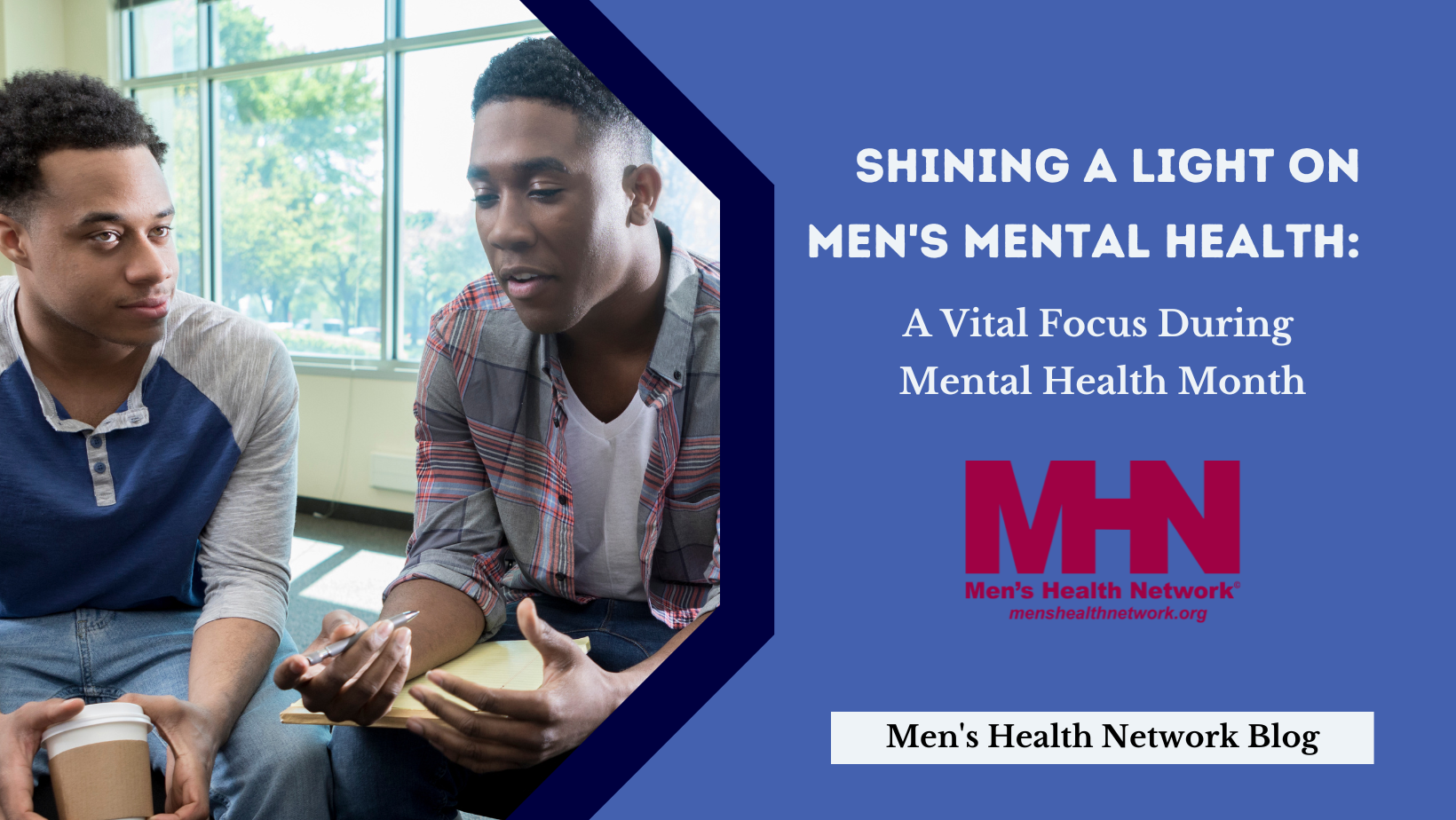Healthy People 2030's next iteration should incorporate male-focused community initiatives that foster adequate support for the health needs of men and boys. By working together—across public health sectors, education systems, workplaces, and community organizations—we can create an environment where all individuals, regardless of sex, have the opportunity to live longer, healthier lives. Read on for more information on how men and boys stand up against Social Determinants of Health as stated in existing policy.Continue reading
Tag: suicide
Suicide Rates, Homelessness, and Workplace Injuries / Deaths: How it Affects the Lifespan of Men
Suicide Rates, Homelessness, and Workplace Injuries / Deaths: How it Affects the Lifespan of Men By: Intern Olivia Schwinn-Clanton Introduction – Lifespan of Men In the United States and around the world, women usually live longer than men. By age 65, 57% of people that age are women, and by age 85, that number increases...
“Daddy Blackbird:” A Story of Resilience and Healing, Unpacking Suicide’s Impact on Men and Their Families
Daddy Blackbird: A Story of Resilience and Healing Unpacking Suicide’s Impact on Men and Their Families On October 10, 2024, World Mental Health Day, Daddy Blackbird by Caroline Roodhouse made its debut—a powerful release that offers a profound look into the unique challenges men face with mental health, particularly when struggles remain unspoken. This deeply...Continue reading
Brain Injury in Service and its Relationship to Mental Health
Brain Injury in Service and its Relationship to Mental Health Concussion Legacy Foundation Author: Samantha Bureau, PhD In September, we come together to raise awareness about concussions so that more individuals and families know what to do in the event they or their loved one sustains one. A concussion is a type of traumatic brain...Continue reading
Shining a Light on Men’s Mental Health: A Vital Focus During Mental Health Month
May is recognized as Mental Health Month, providing an invaluable opportunity to raise awareness and understanding about mental health issues. In this blog, we explore and discuss the significance of Mental Health Month for men, boys, and their families.Continue reading
Why Is Emotional Health Stereotyped as a Woman’s Issue?
The age of social media has seen the normalization of various aspects of life previously considered taboo. A primary example of this is mental health awareness. Instagram and Twitter are overflowing with examples of females (some with large followings) sharing vulnerable stories about their struggles with depression, anxiety, and more. They openly discuss their journey...Continue reading
Research evaluates ways of providing mental health care in rural areas
Living in a rural area doesn’t mean you will be less likely to suffer from mental health problems. It does mean you will be less likely to have easy access to diagnosis and care. Even though rural residents are in poorer health generally than those living elsewhere, they have less access to treatment, partly because...Continue reading
Research tests benefits of matching addiction patients to treatment options
When it comes to gender, alcohol and drug abuse are not equal-opportunity afflictions. Men are more likely than women to use almost all types of illegal drugs, and they are more likely to end up in emergency rooms or dying as a result of overdose, according to the National Institute on Drug Abuse. Men also have...Continue reading
COVID-19 isolation contributes to mental health issues for men and boys
COVID-19’s isolation may be necessary for physical health, but it’s causing a torrent of mental health problems for boys and young men that are worsening as the pandemic drags on. Family members, friends and work colleagues can play an important part in monitoring the mental health of the men and boys they care about. The...Continue reading
The Gift of Maleness Part 5: The Third Chimpanzee and Male Suicide
The most tragic indictor of a world out of balance is the suicide rate in males. At every age, males take their own lives at rates much higher than females: Male 10 to 14-year-olds have suicide rates 1.8 times higher than females Male 15 to 19-year-olds have suicide rates 4.0 times higher than females. During...










